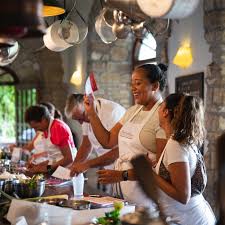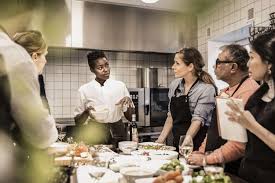The Origins of Moroccan Culture
Morocco, a land of vibrant colours, intricate designs, and captivating traditions, has a rich cultural heritage that traces back through centuries of history. The origins of Moroccan culture are a tapestry woven with influences from various civilizations that have left their mark on this North African country.
Berber Roots
At the heart of Moroccan origins lie the Berber people, the indigenous inhabitants who have inhabited North Africa for thousands of years. The Berbers have played a significant role in shaping Morocco’s cultural identity through their language, customs, and artistry.
Arab Influence
Over time, Morocco has also been influenced by Arab culture, particularly through the Arab conquests and subsequent interactions with Arab traders and settlers. This influence is evident in Morocco’s language (Arabic), architecture (such as the iconic Moorish designs), and religious practices (Islam).
African Connections
Being part of the African continent has also contributed to the diverse origins of Moroccan culture. Trade routes connected Morocco to sub-Saharan Africa, bringing influences in music, dance, and craftsmanship that have enriched the cultural tapestry of the region.
Euro-Mediterranean Interactions
Throughout history, Morocco has been a crossroads for various civilizations from Europe and the Mediterranean region. Phoenicians, Romans, Vandals, and later European powers like Spain and France have all left their imprint on Moroccan culture through trade, conquests, and exchanges.
Synthesis of Cultures
What makes Moroccan culture truly unique is its ability to synthesize these diverse influences into a harmonious blend that is distinctly Moroccan. From the vibrant souks to the intricate mosaics adorning mosques and palaces, every aspect of Moroccan life reflects this fusion of cultures.
Preserving Heritage
Today, efforts are being made to preserve and celebrate Morocco’s rich cultural heritage. Festivals showcasing traditional music and dance, museums housing ancient artefacts, and initiatives to safeguard endangered languages all contribute to keeping alive the origins of Moroccan culture for future generations to cherish.
In conclusion, the origins of Moroccan culture are a testament to the country’s diverse past and its ability to embrace different influences while maintaining its unique identity. By understanding these roots, we can appreciate the beauty and complexity of Morocco’s cultural tapestry that continues to fascinate visitors from around the world.
Exploring Moroccan Origins: Unveiling the Ancestry and Heritage of Morocco’s People
- Who was in Morocco before the Arabs?
- Who are the ancestors of Moroccan people?
- Where does Morocco DNA come from?
- Are Moroccans Arab or African?
- Is Morocco 100% Arab?
- Who are the original inhabitants of Morocco?
- Where do Moroccans originate from?
Who was in Morocco before the Arabs?
Before the Arabs, Morocco was inhabited by the Berber people, who are considered the indigenous population of North Africa. The Berbers have a long history in the region, with their own distinct language, customs, and traditions. Their presence in Morocco dates back thousands of years and has had a significant influence on the country’s culture and identity. The Berbers played a crucial role in shaping Morocco before the Arab conquests and subsequent interactions that introduced elements of Arab culture to the region. Understanding the history of Morocco before the arrival of the Arabs provides valuable insights into the diverse origins and heritage of this fascinating country.
Who are the ancestors of Moroccan people?
The ancestors of the Moroccan people are a diverse mix of Berber, Arab, African, and European populations that have shaped the country’s rich cultural heritage. The indigenous Berber tribes, with their deep-rooted presence in North Africa, form a significant part of Morocco’s ancestry. Arab influences from the Arab conquests and subsequent interactions have also played a crucial role in shaping the ethnic makeup of the Moroccan population. Additionally, connections to sub-Saharan Africa and interactions with various Mediterranean civilizations have further contributed to the ancestral lineage of the Moroccan people. This intricate blend of ancestries reflects the unique and multifaceted identity of modern-day Moroccans.
Where does Morocco DNA come from?
The question of where Morocco’s DNA originates from is a complex and fascinating one, reflecting the diverse historical influences that have shaped the genetic makeup of the Moroccan population. Morocco’s DNA is a mosaic of ancestral contributions from various sources, including Berber tribes indigenous to North Africa, Arab conquerors who brought Islam and Arabic culture, African connections through trade routes, and interactions with European and Mediterranean civilizations. This genetic diversity mirrors the rich tapestry of Moroccan culture, highlighting the country’s position as a melting pot of different ethnicities and histories.
Are Moroccans Arab or African?
The question of whether Moroccans are Arab or African is a complex one that reflects the diverse heritage of the Moroccan people. Moroccans are considered to be both Arab and African, as their ancestry and cultural identity are shaped by a blend of influences from various civilizations. While the Arab conquests and language have had a significant impact on Morocco, the indigenous Berber population and connections to sub-Saharan Africa also play a crucial role in shaping Moroccan identity. This dual heritage is what makes Moroccans unique, embodying a rich tapestry of Arab, African, and indigenous Berber traditions that contribute to the vibrant mosaic of Moroccan culture.
Is Morocco 100% Arab?
The question of whether Morocco is 100% Arab is a complex one that delves into the diverse cultural tapestry of the country. While Arabic language and Islamic religion have significant influences in Morocco, the country’s identity is not solely defined by Arab culture. Morocco’s origins also encompass Berber roots, African connections, and interactions with various civilizations over history, resulting in a unique blend of influences that make up the rich mosaic of Moroccan culture. Thus, Morocco’s heritage transcends a singular label and embraces a multifaceted identity that reflects its historical interactions and diverse origins.
Who are the original inhabitants of Morocco?
The original inhabitants of Morocco are the Berber people, who have inhabited North Africa for thousands of years. The Berbers have played a significant role in shaping Moroccan culture with their unique language, customs, and traditions. Over time, Morocco has also been influenced by Arab culture through interactions with Arab traders and settlers. This blend of Berber and Arab influences, along with contributions from various African and Mediterranean civilizations, has created the diverse cultural tapestry that defines Morocco today.
Where do Moroccans originate from?
The origins of Moroccans can be traced back to a complex interplay of various ethnic groups and civilizations that have inhabited the region over millennia. Moroccans have Berber roots, with the indigenous Berber people being one of the foundational components of Moroccan identity. Additionally, influences from Arab conquerors, sub-Saharan African trade connections, and interactions with European powers have all contributed to shaping the diverse origins of the Moroccan population. This cultural mosaic reflects the rich history and heritage of Morocco, making it a fascinating tapestry of different influences and traditions that have blended together to create the unique identity of modern-day Moroccans.



